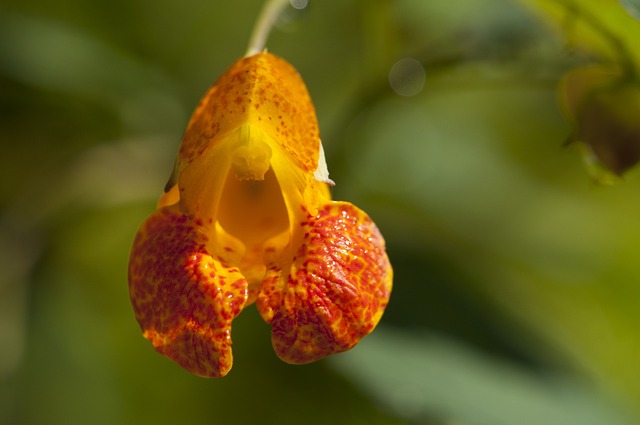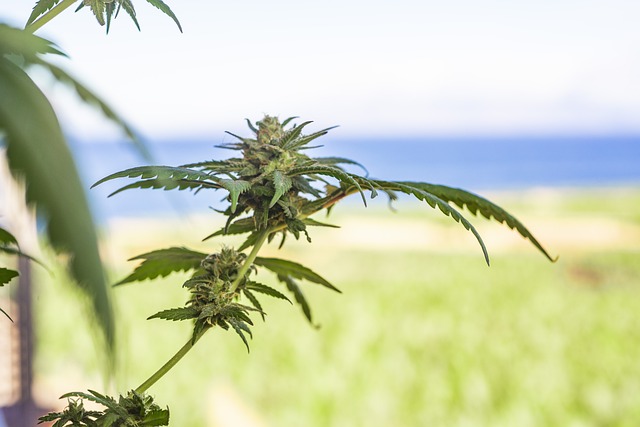
Delta-9 tetrahydrocannabinolic acid (THCA), a non-psychoactive compound found in cannabis, exhibits significant anti-inflammatory properties and interacts with the endocannabinoid system to influence CB1 and CB2 receptors. THCA's potential as a therapeutic agent for inflammatory conditions is highlighted by its ability to inhibit certain pro-inflammatory cytokines and enzymes, offering a natural approach to managing inflammation and pain without psychoactive effects. Additionally, THCA flower contains betulinic acid, another cannabinoid with anti-inflammatory properties that can modulate inflammatory pathways, making it a potential treatment option for conditions with excessive inflammation where traditional medications may be less effective or have adverse side effects. THCA's anti-inflammatory efficacy is supported by its inhibition of COX-2 activity, similar to NSAIDs. Users have reported improved management of inflammatory conditions like arthritis and gout after incorporating THCA flower into their health regimens, suggesting its potential as a complementary natural remedy for chronic inflammation, with the caveat that individuals should consult healthcare providers before use, especially when on other medications or managing specific health concerns. The anecdotal evidence and ongoing research support THCA flower's role as a safe and effective anti-inflammatory agent.
Exploring the therapeutic potential of natural remedies, this article sheds light on the emerging benefits of THCA flower, particularly its anti-inflammatory effects. Delving into the science behind its properties, we uncover how THCA flower may offer relief for those experiencing inflammation. From understanding its effects to practical dosage and application advice, this piece also shares real-life testimonials highlighting its positive impact on individuals’ health challenges. Join us as we investigate the transformative power of THCA flower in combating inflammation.
- Unveiling the Potency of THCA Flower: A Deep Dive into Its Anti-Inflammatory Properties
- The Science Behind THCA Flower's Anti-Inflammatory Effects
- Utilizing THCA Flower for Inflammation Relief: Dosage and Application Tips
- Real-Life Testimonials: How THCA Flower Has Improved Individuals' Inflammation Challenges
Unveiling the Potency of THCA Flower: A Deep Dive into Its Anti-Inflammatory Properties

Delta-9 tetrahydrocannabinol acid (THCA) is a natural compound found in the cannabis plant that has garnered attention for its potential therapeutic properties, particularly its anti-inflammatory effects. Unlike its psychoactive counterpart, delta-9 THC, THCA remains non-psychoactive, making it an attractive option for those seeking the benefits of cannabinoids without the “high.” Research indicates that THCA possesses a robust profile of anti-inflammatory effects, which could be beneficial in addressing various inflammatory conditions. This is attributed to its interaction with the body’s endocannabinoid system, where it can influence CB1 and CB2 receptors. The anti-inflammatory properties of THCA are believed to stem from its ability to inhibit certain pro-inflammatory cytokines and enzymes involved in inflammation and pain response.
Furthermore, studies have shown that THCA may offer a protective effect against neurodegenerative diseases by exerting anti-inflammatory influence within the central nervous system. This could potentially slow the progression of conditions like multiple sclerosis and amyotrophic lateral sclerosis (ALS), where inflammation plays a significant role. The exploration into the efficacy and optimal dosage of THCA flower for various conditions continues to grow, with preliminary findings suggesting a promising future for this natural remedy in managing chronic inflammation and improving overall well-being.
The Science Behind THCA Flower's Anti-Inflammatory Effects

Betulinic acid, a notable cannabinoid found within THCA flowers, has been studied for its anti-inflammatory properties. Research indicates that betulinic acid can inhibit certain inflammatory responses by modulating key pathways involved in inflammation. This action is particularly relevant in conditions characterized by excessive inflammation, where traditional treatments may fall short or have undesirable side effects. The anti-inflammatory effects of THCA flowers are also attributed to their interaction with the body’s endocannabinoid system, which plays a critical role in maintaining homeostasis and regulating immune responses. Studies have shown that THCA can inhibit the activity of certain enzymes like COX-2, which is often targeted by nonsteroidal anti-inflammatory drugs (NSAIDs). This inhibition contributes to the anti-inflammatory effects of THCA flowers, potentially offering a natural alternative for managing inflammation associated with various health conditions. The therapeutic potential of THCA flower’s anti-inflammatory effects is an area of ongoing research, with promising findings suggesting that it could play a role in mitigating symptoms of inflammatory diseases.
Utilizing THCA Flower for Inflammation Relief: Dosage and Application Tips

THCA, or tetrahydrocannabinolic acid, is a non-psychoactive compound found in the cannabis plant that has been gaining attention for its potential therapeutic properties, particularly its anti-inflammatory effects. When heated, THCA converts to THC, but in its raw form, it exhibits significant benefits without the psychoactive impact associated with THC. For individuals seeking inflammation relief, THCA flower can be a valuable natural remedy due to its ability to interact with the body’s endocannabinoid system, which plays a role in regulating pain and inflammation.
To harness the anti-inflammatory effects of THCA flower, it’s crucial to understand the appropriate dosage and application methods. Dosage can vary greatly depending on an individual’s body weight, tolerance, and specific health conditions. A common starting point is 1-2 milligrams of THCA per 10 pounds of body weight, divided into two or three daily doses. This amount may be adjusted over time based on personal needs and responses. Application can be through various methods; it can be smoked, vaporized, or used in the making of edibles. For those preferring non-inhalation methods, infusing THCA flower into oils or teas is effective as well. It’s important to note that while THCA has shown promise for inflammation relief, it should complement rather than replace conventional medical treatment and should be discussed with a healthcare provider, especially if taking other medications or addressing underlying health issues.
Real-Life Testimonials: How THCA Flower Has Improved Individuals' Inflammation Challenges

Users across the spectrum have reported significant improvements in managing inflammation through the use of THCA flower, a cannabinoid-rich hemp derivative that has garnered attention for its potential anti-inflammatory effects. Anecdotal evidence suggests that incorporating THCA flower into their wellness routines has led to noticeable reductions in symptoms associated with inflammatory conditions such as arthritis and gout. For instance, individuals have shared experiences of reduced joint pain and swelling after regular consumption of THCA flower, crediting its natural properties for the alleviation of discomfort. Moreover, those with chronic inflammation due to lifestyle factors or underlying health issues have found that the anti-inflammatory effects of THCA flower play a role in mitigating the body’s inflammatory response, contributing to an overall enhanced sense of well-being. These real-life testimonials underscore the potential benefits of THCA flower as a natural alternative or complementary therapy for individuals seeking relief from inflammation.
THCA flower emerges as a notable plant-based solution for those seeking natural relief from inflammation, backed by its potent anti-inflammatory effects. This article has delved into the science and practical applications of using THCA flower, providing a comprehensive understanding of its benefits. From its medicinal properties to real-world testimonials, it’s evident that THCA flower offers a promising alternative for managing inflammation-related conditions. As research continues to unfold, the potential uses and therapeutic effects of THCA flower are likely to expand, further solidifying its role in health and wellness regimens.


